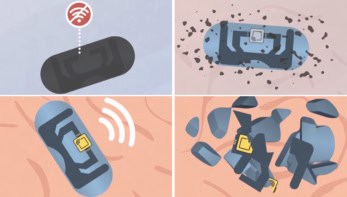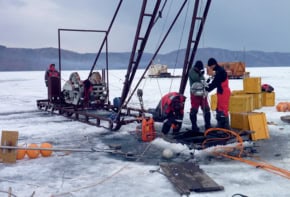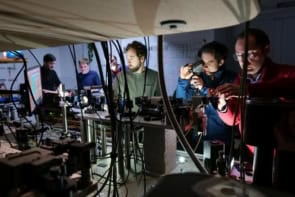Particle accelerators are used by just about every branch of science and technology these days: from chemists studying molecules using X-ray free-electron lasers to doctors treating eye cancer using beams of protons. And, of course, there are the particle physicists, who recently used the Large Hadron Collider at CERN to find the Higgs boson.
All of these applications, and many more, are the focus of the UK’s Cockcroft Institute of Accelerator Science and Technology, which is located at Daresbury Laboratory in the Cheshire countryside, half way between Liverpool and Manchester.
In this video, Cockcroft Institute co-founder and its first director, John Dainton, explains why researchers in the north of England banded together to create the facility, which first opened its doors in 2006.
The video also features the head of Daresbury Laboratory, Susan Smith, who talks about how the institute benefits from being located at Sci-Tech Daresbury – a national science and innovation campus that includes the lab plus more than 120 hi-tech companies.
Dainton and Smith also talk about the Compact Linear Accelerator for Research and Applications (CLARA), which will provide a test bed for developing the technology for free-electron lasers. The ultimate goal of CLARA is to support the creation of a national free-electron-laser facility in the UK.
Earlier this year, Dainton recorded a 100 Second Science video that answers the question “Why is fundamental science important?“.
- For more information on free-electron lasers and to find out what is coming up in the field over the next few years, check out the recent special issue on the topic published by J. Phys. B. All articles are free to read until 28 February 2014



